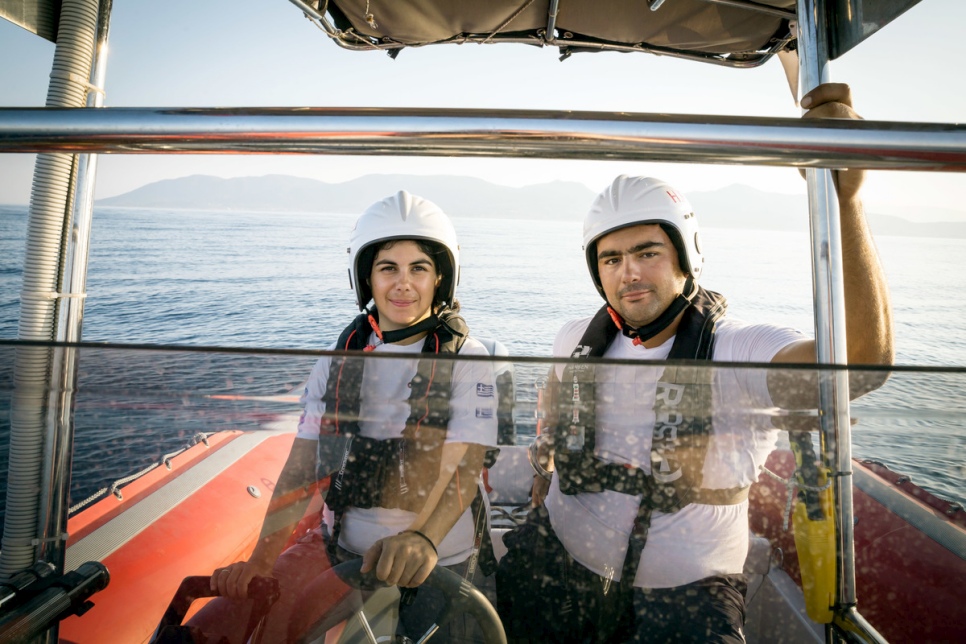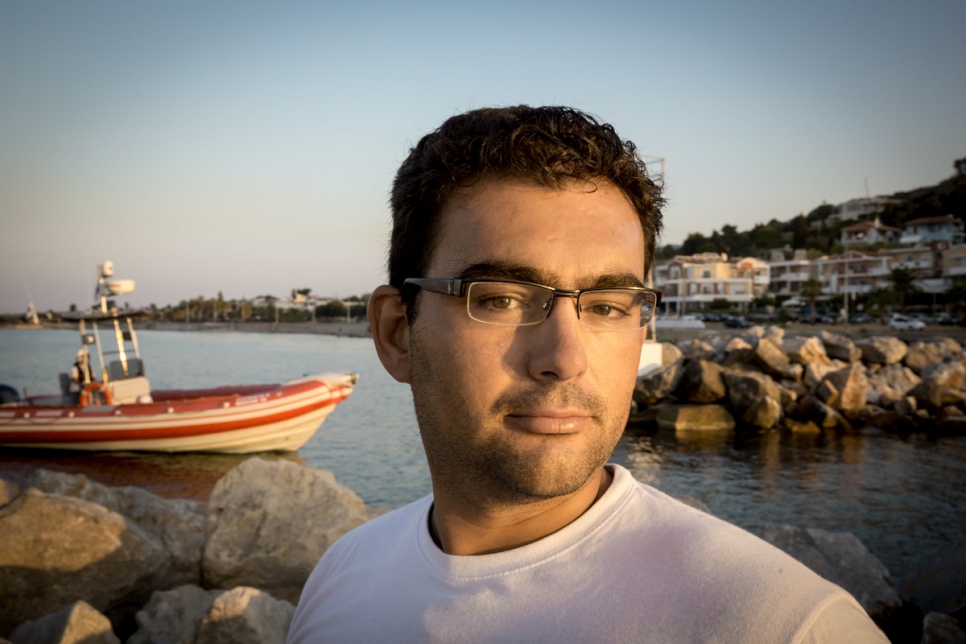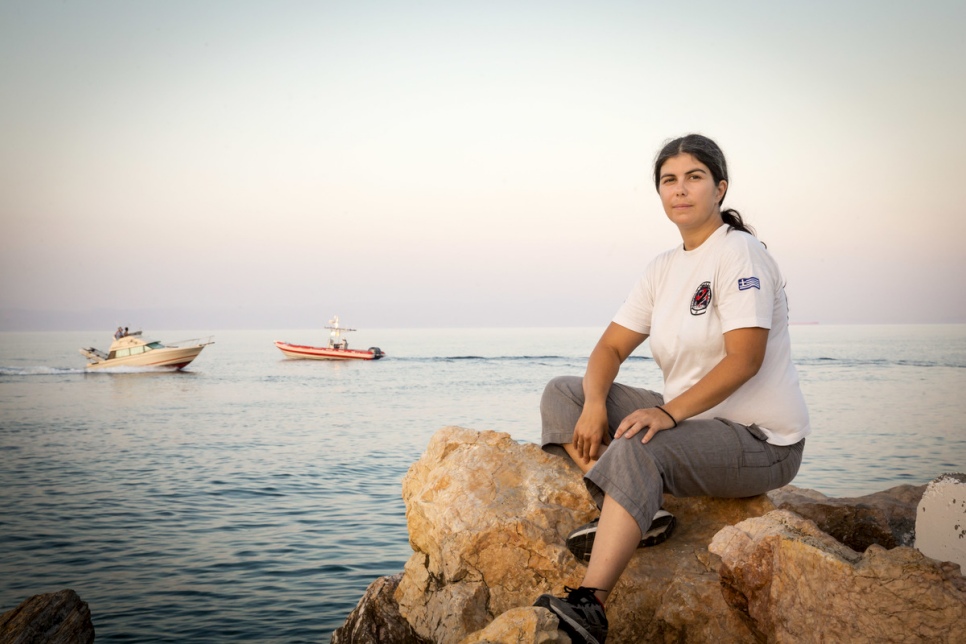Talk, or the water will break your heart
Volunteers for 2016 Nansen Refugee Award winners Hellenic Rescue Team share their experience of a traumatic year.

Antigioni Piperaki (left) and Panagiotis Konstantaras (right) are Hellenic Rescue Team volunteers from Lesvos, Greece. © UNHCR/Gordon Welters
LESVOS, Greece – At a small tavern overlooking the coastline of Lesvos, Panagiotis Konstantaras and Antigoni Piperaki are taking a short break from their duties as volunteers for the Hellenic Rescue Team (HRT) to reflect on a year they will never forget.
“We have exercises where we practice with five or 10 people on board,” says Antigoni, shaking her head. “But when you see a boat with 50 people you say, ‘What do I do now?’ At this time you don’t know how you think.”
The pair were among a team of HRT rescuers operating here at the height of the refugee crisis in 2015, during which new arrivals on the island of Lesvos alone topped 10,000 in one day. Volunteers spent much of the year on high alert, regularly going beyond the call of duty to rescue refugees stranded at sea. Many like Panagiotis and Antigoni worked day and night, juggling full-time jobs and their studies with rescue missions, using limited resources and often receiving calls from the coastguard in the early hours of the morning.
“At the beginning of March, the numbers started to increase a lot."
Panagiotis is a farmer who also volunteers as a diver with HRT on Lesvos. He remembers the moment that 2015 took a turn for the worse.
“At the beginning of March, the numbers started to increase a lot,” he says. “There were about ten boats from the coastguard. But even that was not enough. Because from 6am to 10am, we had 35 or 40 boats full of refugees.”
As the year progressed, the situation spiraled.
“Sometimes, there were big boats and they were not safe,” he continues. “It was wood – old wood. And inside there were 200 people. In 2015, we had a big accident with a three-floor boat, with people on each level. When it capsized, they were suddenly crushed. And for one week we picked up dead people.” He sighs. “I don’t feel any more. I try not to see the faces.”
Antigoni, a mother who leads the HRT team on Lesvos and works for a pharmaceutical association, says many of the volunteers experienced a traumatic year at sea. “Every time you think about 2015, you always have dead bodies,” she says. “Most people have memories of this. My husband found the body of a baby in November and every day he hugged our nine-month-old daughter for about four hours. He couldn’t leave her.”
“All countries must try to solve the problems in Syria, Pakistan and Afghanistan.”
But, often, HRT volunteers found strength in each another. “Talk,” advises Panagiotis. “Or the water will break your heart.”
Thousands of Greek volunteers like Panagiotis and Antigoni helped to restore hope over the course of 2015, with no recognition or reward. Many were driven by a sense of duty towards their fellow humans – a response the Greeks call ‘philoxenia’.
“I had a sister with cystic fibrosis,” says Antigoni. “She died at 28 years old. I think because my mum and dad always helped my sister, I take this legacy and I want to help another – not only with cystic fibrosis, but any problems, money or food or anything. My sister is not in my life now but I can help the refugees who come. Always there is a problem bigger than mine.”
Antigoni hopes political leaders can one day share this vision.
“All countries must try to solve the problems in Syria, Pakistan and Afghanistan,” she says. “Not ‘I stay here, I don’t have problems now and you solve your problem alone’.” It’s everybody’s problem – because now it’s in Syria, maybe tomorrow it’s in England. All is connected.”
For now, her tireless work and that of her fellow HRT volunteers goes on.
“The members of my team, I see them and think, ‘If I stop now, the new people don’t have the experience I have. I’ll stay another year and help them to be better.’ And maybe the rest of Greece is better.”


